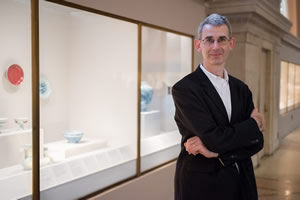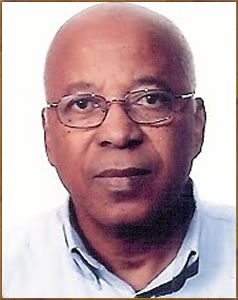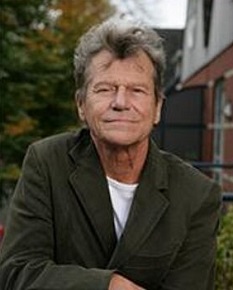De Britse schrijver, keramist en hoogleraar Edmund Arthur Lowndes de Waal werd geboren op 10 september 1964 in Nottingham. Zie ook alle tags voor Edmund de Waal op dit blog.
Uit: The Hare With Amber Eyes: A Hidden Inheritance
`I look up at the second-floor windows where Charles had his suite of rooms, some of which looked across the street to the more robustly classical house opposite, some across the courtyard into a busy roofscape of urns and gables and chimneypots. He had an antechamber, two salons — one of which he turned into his study – a dining-room, two bedrooms and a ‘petite’. I try to work it out; he and his older brother Ignace must have had neighbouring apartments on this floor, their elder brother Jules and their widowed mother Mina below, with the higher ceilings and grander windows and the balconies on which, on this April morning, there are now some rather leggy red geraniums in plastic pots. The courtyard of the house was glazed, according to the city records, though all that glass is long gone. And there were five horses and three carriages in these stables which are now a perfect bijou house. I wonder if that number of horses was appropriate for a large and social family wanting to make the right kind of impression.
It is a huge house, but the three brothers must have met every day on those black-and-gold winding stairs, or heard each other as the noise of the carriage being readied in the courtyard echoed from the glazed canopy. Or encountered friends going past their door on the way up to an apartment above. They must have developed a way of not seeing each other, and not hearing each other, too: to live so close to your family takes some doing, I think, reflecting on my own brothers. They must have got on well. Perhaps they had no choice in the matter. Paris was work, after all.
The Hôtel Ephrussi was a family house, but it was also the Parisian headquarters of a family in its ascendancy. It had its counterpart in Vienna, the vast Palais Ephrussi on the Ringstrasse. Both the Parisian and Viennese buildings share a sense of drama, of a public face to the world. They were both built in 1871 in new and fashionable areas: the rue de Monceau and the Ringstrasse were so of-the-minute that they were unfinished, untidy, loud and dusty building sites. They were still spaces that were inventing themselves, competitive with the older parts of town with their narrower streets, and spikily arriviste.
If this particular house in this particular streetscape seems a little stagey, it is because it is a staging of intent. These houses in Paris and Vienna were part of a family plan: the Ephrussi family was ‘doing a Rothschild’. Just as the Rothschilds had sent their sons and daughters out from Frankfurt at the start of the nineteenth century to colonise European capital cities, so the Abraham of my family, Charles Joachim Ephrussi, had masterminded this expansion from Odessa in the 1850s. A true patriarch, he had two sons from his first marriage, Ignace and Léon. And then when he remarried at fifty he had continued producing children: two more sons, Michel and Maurice, and two daughters, Thérèse and Marie. All of these six children were to be deployed as financiers or married into suitable Jewish dynasties.”

Edmund de Waal (Nottingham, 10 september 1964)


